Depression Era Tips to Save You Money
Are you on a tight budget, wondering how you’ll stretch your budget this month? Honestly, who isn’t? Consider yourself blessed if money is of no concern to you. I’m sharing 20 depression-era tips to help stretch your budget, reduce waste, and reuse products to make the most of the space you have in your home.
As a mom of six, our budget is stretched to the max. I love having a large family; I’ve prayed over it for many years. It has its fair share of difficulties, though, and I’ve worked hard to make changes that help us put nutritious meals on the table that fill our bellies.
I often share how we stretch our budget to provide for our family of 8, so make sure you peek around my site for more tips on managing our home and expenses for our large family!
Depression-era tips to save money
Replace your cleaning products
Toss your unnecessary cleaning products, and use baking soda, vinegar, and alcohol to clean your home. I’m not joking when I say you can clean your entire home with 3 products! Not only are other cleaning products expensive, but they’re also toxic! You’ll spend pennies to clean your home and feel good about it.
Save veggie peels
Make your own veggie stock by saving peels of onions, carrots, potatoes, and celery stalks. Freeze the veggie scraps until you have a full bag, then boil and simmer for 30-45 minutes. Strain, add seasonings, and you’re all set! You can make large batches ahead of time and freeze them in ice cube trays for easy access when making meals for your family.
Make your own breadcrumbs
Aside from being filled with unnecessary ingredients, store-bought breadcrumbs aren’t very tasty. Instead, use bread that’s starting to dry out to make your own! Place bread on a cookie sheet and bake in the oven at 200 degrees for about 20 minutes or until toasted, flipping pieces halfway through. Store in an airtight container, and add your favorite seasonings. We use these for coating chicken, meatballs, meatloaf, and more.
Reduce servings of meat or eat 1-2 meat-free meals a week
High-protein meals are filling and satisfying, but meat is one of our largest expenses with a larger family. To keep our budget in check, we reduce our servings and serve meat as a side instead of the main part of the dish. In addition, when planning our meals out for the week, I plan 1-2 dinners that are meat-free. This helps keep costs down when prepping.
Meals like grilled cheese, soup, omelets, and pizza are all delicious and cost-efficient options to add to your menu plan.
Store fruit in airtight jars after washing to keep fresh as long as possible
My kids could eat their weight in fruit and veggies. No complaints, except the cost is absurd! To keep fruits and veggies fresh for as long as possible, I wash them in baking soda and water to remove dirt, air dry completely, and store them in airtight containers like mason jars so they stay fresh as long as possible.
Ditch single-use items
Things like paper towels are convenient but not cost-efficient. A 12-pack of paper towels is now around $18 at Costco. As a large family, we go through at least one pack a month, if not more. It’s no longer affordable for us, so I made the switch to reusable hand towels, and we love it. A 48-pack was around $20 on amazon, and they last about 3 days before we run out and need to wash them.
Bulk up meals with beans and root vegetables like potatoes and carrots
Beans and root vegetables are affordable and add important vitamins and fiber to meals. We use them often to stretch our meals further and stay full, and the meal possibilities are endless.
Take up new hobbies
Hobbies that were once considered old-fashioned are making a comeback. Whether for frugality, comfort, or stress relief, these hobbies are excellent ways to save money and do something that brings you joy.
Sewing, quilting, crocheting
Fix clothes, reattach buttons, or make something new. These skills are excellent for saving money and making something useful.
Sourdough
I recently made a starter from scratch, and it’s been almost therapeutic. Sourdough has incredible health benefits and is way less intimidating when you get the hang of it! If you’ve tried sourdough but feel overwhelmed, don’t give up! It gets easier, I promise.
Gardening
Working with your hands can do incredible things for your mental health and providing for your family. Don’t let space deter you from trying. Even a few feet of dirt is perfect for a few veggies.
Canning
Preserving foods by canning them will extend their life and create a stash of food. You don’t need hundreds of canned foods on hand; even a few items will help stretch your budget and save you money.
Cook from scratch
Items like bread, pasta, baked goods, soups, and jams are all items to learn to make yourself and are almost always cheaper to make from scratch. Plus, you’ll avoid unnecessary ingredients by making them yourself instead of purchasing them from the store.
Another great habit to incorporate is cooking in bulk. Overnight oats, rice dishes, and casseroles can be doubled and frozen for meals later in the week!
Create a budget and stick to it!
I recently shared our monthly budget and how we feed our family of 8 on $200 a week. While it is sometimes a struggle, we work hard to stick to our budget while providing delicious, nutrient-dense meals. It would be great to head to the grocery store and just fill my cart with whatever we wanted, but that’s not our reality right now, so to stick to our budget, we plan our meals, purchase what we need, and create meals we all enjoy. There’s a learning curve, but I love creating meals that keep us full.
Which tip is your favorite? Have any depression-era tips you think I should add to the list? Let me know in the comments below!
This site may contain links to affiliate websites including Amazon. I may receive an affiliate commission for any purchases made by you through Amazon or other potential affiliates and no additional cost to you. Thank you for your support.

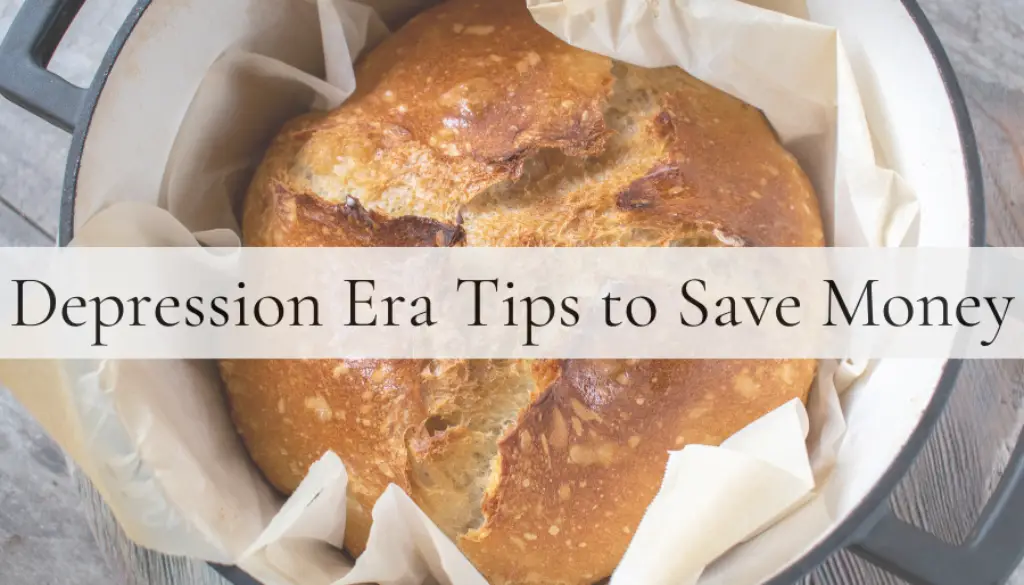


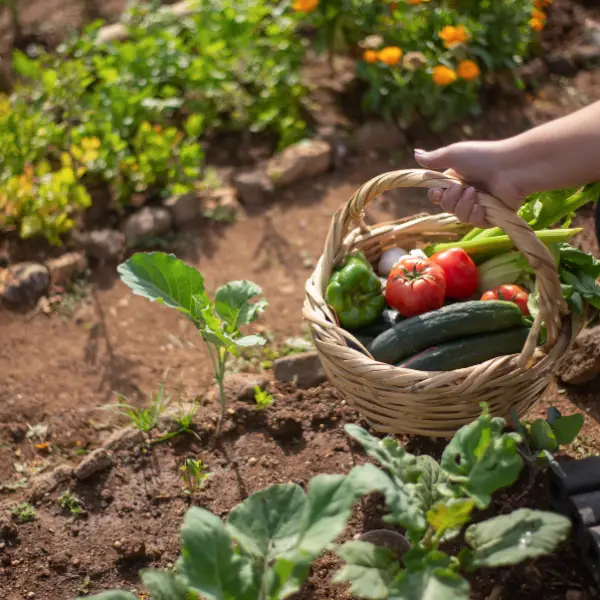
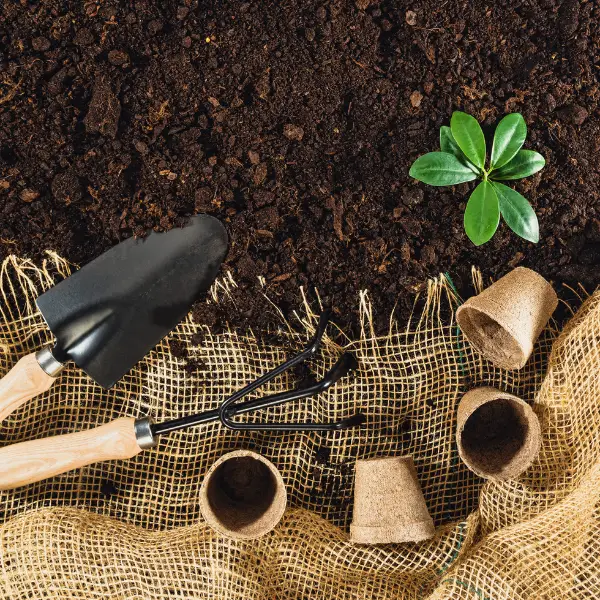

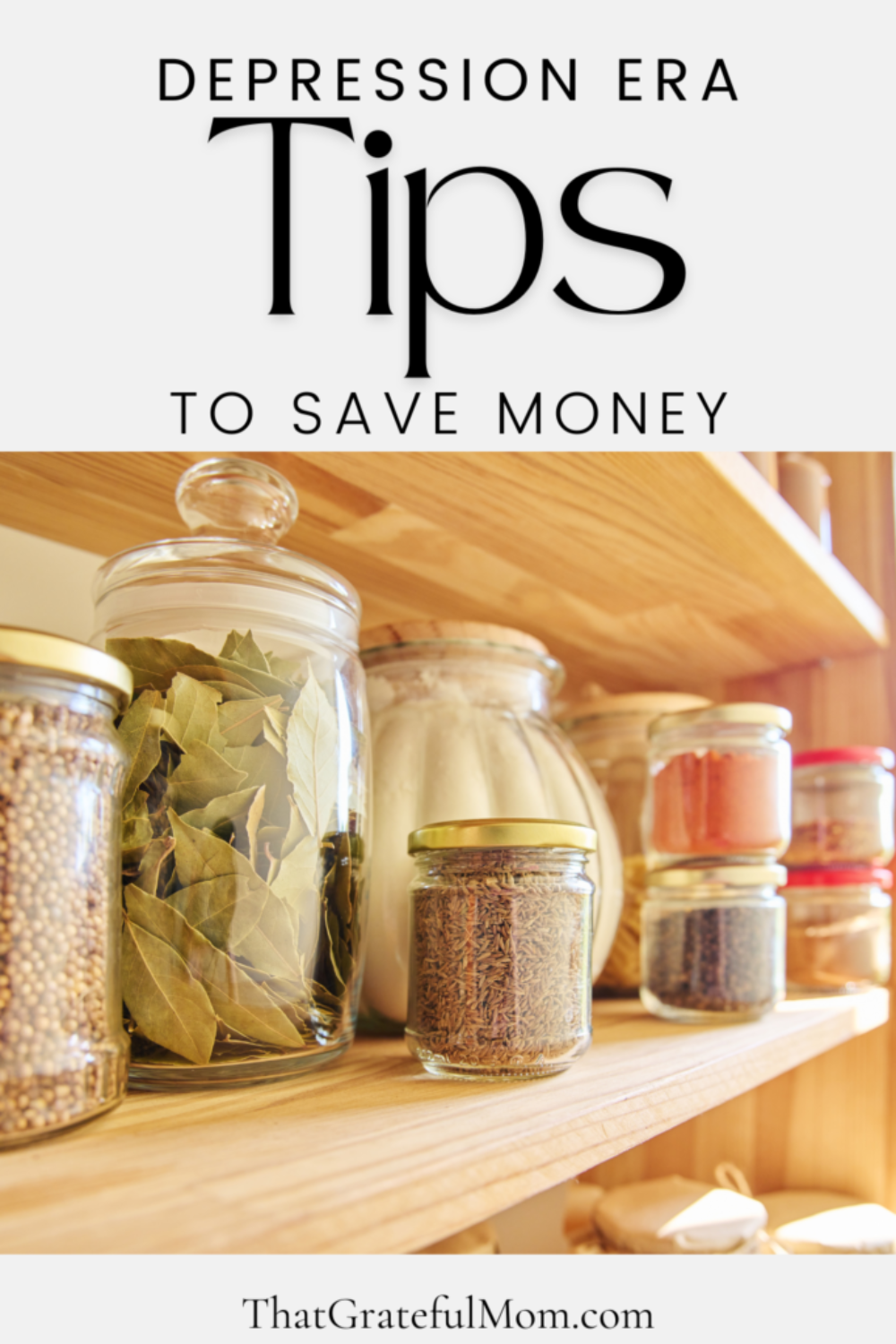
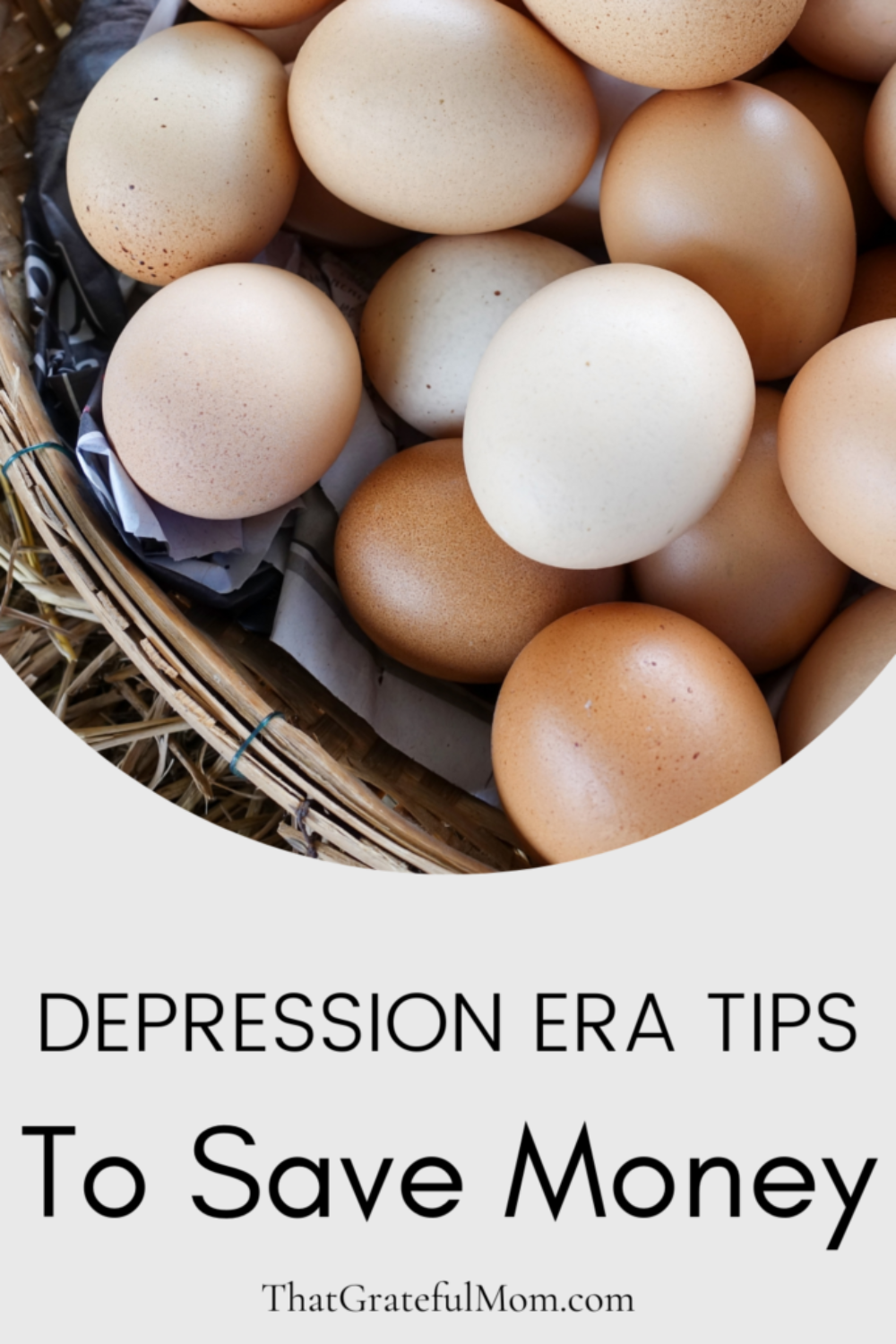
![Setting Sustainable Goals That Will Change Your Life Will Change Your Life [Plus over 50 goal ideas!] PHOTO Sustainable Goals](https://thatgratefulmom.com/wp-content/uploads/2023/03/Setting-Sustainable-Goals-That-Will-Change-Your-Life-Will-Change-Your-Life-Plus-over-50-goal-ideas-PHOTO-1024x640-394x330.jpg)

